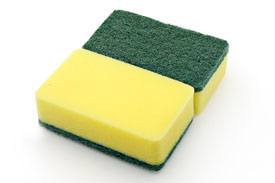
Thermoplastic polyurethanes (TPU) are a class of versatile plastics renowned for their exceptional properties, including high elasticity, abrasion resistance, chemical resistance, and durability. The designation system and specifications for TPU encompass a range of criteria that define their physical and mechanical characteristics, aiding in their selection and application in moulding and extrusion processes. Typically, TPU grades are designated by a combination of letters and numbers representing specific properties such as hardness, tensile strength, and elongation at break. Its specifications include parameters related to thermal stability, resistance to environmental factors, and specific end-use requirements. These designation systems and specifications serve as vital guidelines for manufacturers and designers to choose the most suitable TPU grade for various applications, ranging from automotive components and footwear to medical devices and industrial machinery components.
IS 17397 (Part 1):2022 is a significant standard in the plastics industry, providing crucial guidelines for thermoplastic polyurethanes (TPUs) used in moulding and extrusion processes. This standard establishes a clear designation system and specifications for TPUs, covering essential parameters such as chemical composition, physical properties, and processing requirements. By defining specific characteristics and performance criteria, IS 17397 (Part 1):2022 ensures that TPUs meet stringent standards for consistency and suitability in various applications, including automotive components, consumer goods, and industrial products. Compliance with this standard not only ensures the quality and reliability of TPUs but also promotes compatibility and interchangeability among different manufacturers and users. Adherence to IS 17397 (Part 1):2022 facilitates regulatory compliance and enhances market acceptance by providing a standardized framework for TPU producers and end-users.
Note: Obtaining the ISI/BIS Certification is a mandatory requirement for manufacturers of Plastics-Thermoplastic Polyurethanes for Moulding and Extrusion - Part 1 Designation System and Specifications to sell their products in the Indian market.
Manufacturers must obtain ISI/BIS certification for their Plastics-Thermoplastic Polyurethanes for Moulding and Extrusion - Part 1 Designation System and Specifications to market and sell these products within India. This certification serves as a crucial validation of compliance with specific quality and safety standards mandated by the BIS for the production and distribution of thermoplastic polyurethanes intended for moulding and extrusion applications. Without the ISI/BIS certification, manufacturers face potential legal consequences and barriers in accessing the Indian market. Obtaining this certification is not only a regulatory requirement but also a pivotal step for manufacturers to demonstrate the reliability, compliance, and quality of their thermoplastic polyurethanes for moulding and extrusion purposes.
Indian Standards Institute, or ISI was renamed the Bureau of Indian Standards (BIS) in 1987. The official mark that the Bureau of Indian Standards provides for manufacturers of various goods is the ISI Mark. It is used to indicate compliance with Indian standards (IS) set by the Bureau of Indian Standards (BIS) and has been used as a conformity marking for industrial products. Manufacturers received permission from BIS to use the ISI Mark on items that comply with relevant Indian requirements through the product certification program.
Only manufacturers (domestic or foreign) who produce the finished product will be awarded ISI Certification. This will not be given to any product importers, traders, dealers, or distributors.
The following documentation is required to get an ISI certification:
For more detailed information, please click here.
There are two approaches for Indian manufacturers to become certified with the ISI Mark:
Regular Procedure
With the possible exception of cases deemed "All India first," which might take up to 180 days, the licensing procedure is expected to be finished in 120 days. This timeline starts on the day the application is received, assuming that at different points in time the documentation, unit assessment, and product conformance are all deemed acceptable.
Step 1: Manufacturing Unit Customization in Compliance with Applicable Indian Standards
Step 2: Submission of the Application Form
For more detailed information, please click here.
Simplified Procedure
This is a much faster process than the standard procedure. After a factory inspection is deemed satisfactory and the initial evaluation establishes that the sample complies with the applicable Indian Standard(s), the license application process is expected to be finished in 30 days.
Step 1: Adapting the Manufacturing Unit to Comply with the Relevant Indian Standard
Step 2: Sample Testing
For more detailed information, please click here
The process of obtaining ISI Mark Certification for Foreign Manufacturers typically includes the following steps:
Step 1: Application
Step 2: Query Raised (If Any)
For more detailed information, please click here.
Brand Liaison provides helpful support for achieving ISI Mark Certification. Among our offerings are:
Please click here to get in contact with our team of specialists for a deeper explanation of the paperwork and steps needed to get ISI Mark Certification.